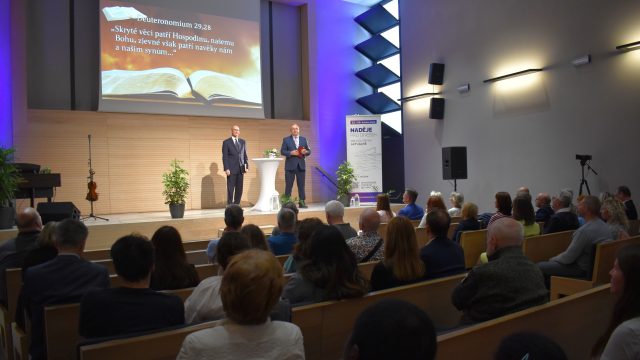The call to rejoice in the Lord always makes sense when we understand praise as an act of faith.

Is it possible to praise God when circumstances are foreboding? Or to put it differently: where can we find the motivation to praise God in moments of crisis? What does it really mean to praise the name of the Lord?
Psalm 113:3 offers a helpful starting point: “From the rising of the sun to its going down the Lord’s name is to be praised.” One understanding of this psalm answers the question as to whether it is possible to praise God in moments of crisis.
UNDERSTANDING PSALM TYPES
It is helpful to note some general facts about the psalms as we think about Psalm 113:3: (1) Bible scholars identify the psalms by type or category; (2) generally, they agree on at least five types: praise (hallel), wisdom, royal, thanksgiving, and lament psalms.¹ Understanding the characteristics of these types will help us as we read the Psalms.
Praise (or hallel) psalms focus on the nature of God and not on specific things that He has done. Praise psalms tell about God’s attributes and encourage believers to praise Him for who He is rather than what He has done. In the praise psalms God is praised for His faithfulness, goodness, righteousness, judgment, and wisdom. Psalms 113-118 are generally identified as the hallel psalms.
Wisdom psalms define that which differentiates the righteous from the wicked. Psalm 14, for example, defines the wise as those who pursue “understanding, and seek after God” (verse 2).
Royal psalms celebrate the kingship of God, “the One enthroned in heaven” (Ps. 2:4, NIV). He reigns, “robed in majesty . . . armed with strength. . . . Mightier than the thunder of the great waters” (Ps. 93:1-4, NIV). Royal psalms also highlight the role of Israel’s kings to “judge Your people with righteousness, and Your poor with justice. . . . He will bring justice to the poor of the people; He will save the children of the needy” (Ps. 72:2-4).
Thanksgiving psalms praise God for His gracious acts. These psalms either exhort the believer to give thanks to God, or express the gratitude of the psalmist. The theme of thanksgiving is sprinkled in many places in the Psalms, but a classic example of a thanksgiving psalm is Psalm 136.
Lament psalms are prayers for deliverance, especially in moments of despair. They express deep sorrow for the sufferings of the nation and the individual. They reveal human struggles and call for God’s intervention. Lament psalms are prayers out of pain (see, for example, Pss. 12:1, 2; 13:3, 4; 22).
EVERYWHERE, ALL THE TIME
Since Psalm 113 belongs to the category of praise psalms, a look at God’s underlying attributes will help us better understand the command to praise Him as expressed in verse 3. We can start by focusing on the meaning of the phrase “From the rising of the sun to its going down.” The phrase may be understood as denoting space and not just time. The phrase suggests a geography of praise, encompassing the East (where the sun rises) and reaching all the way to the West (where the sun sets). “From the rising of the sun to the place where it sets.” But it’s also biblically correct to understand the phrase as denoting time—from morning till evening. In the Creation account, the often-repeated expression “And there was evening, and there was morning” defines a 24-hour cycle. The sun separates the day from the night, and serves “for signs and seasons, and for days and years” (Gen. 1:14).
The call in Psalm 113:3, therefore, is to praise the name of the Lord everywhere and at all times. God’s children in every corner of the world are to praise Him. The location and circumstances are not to dictate whether we will praise the name of the Lord or not.
In Philippians 4:4 the apostle Paul exhorts believers to “rejoice in the Lord always.” It’s easy to rejoice when everything is going right. When things turn upside down, however, rejoicing seems unnatural, yet Paul is calling us to rejoice always.
The call to rejoice in the Lord always makes sense when we understand praise as an act of faith. We can learn from the example of King Jehoshaphat: “It was with songs of praise that the armies of Israel went forth to the great deliverance under Jehoshaphat. . . . Before the army went singers, lifting their voices in praise to God—praising Him for the victory promised. . . . On the fourth day thereafter, the army returned to Jerusalem, . . . singing praise for the victory won.”²
To praise the name of the Lord is to honor and exalt Yahweh and His character, which are represented by His name. It is to demonstrate a spirit of trustfulness, obedience, and joy in God. It means to give glory to His name. To praise the name of the Lord involves remembering His faithfulness.
We praise the name of the Lord when our lives are filled with the righteousness of God. We praise the name of the Lord when our lives are characterized by a faith that defies circumstances—a faith that shows confidence even when circumstances are foreboding.
We praise the name of the Lord when we speak “to one another in psalms and hymns and spiritual songs, singing and making melody” in our hearts “to the Lord” (Eph. 5:19).
Praise is more than an activity we do. It should be the atmosphere in which we live. Praise should be our way of life. “The melody of praise,” wrote Ellen White, “is the atmosphere of heaven; and when heaven comes in touch with the earth, there is music and song.”³
Therefore, “let us educate our hearts and lips to speak the praise of God for His matchless love. Let us educate our souls to be hopeful and to abide in the light shining from the cross of Calvary. Never should we forget that we are children of the heavenly King, sons and daughters of the Lord of hosts. It is our privilege to maintain a calm repose in God.”⁴
I like the way Ellen White brings it together: “Praise the Lord even when you fall into darkness. Praise Him even in temptation. ‘Rejoice in the Lord alway,’ says the apostle; ‘and again I say, Rejoice.’”⁵
¹ See, for example, Steven J. Lawson, Holman Old Testament Commentary—Psalms 1-75 (Nashville: B&H Publishing Group, 2003), p. 5.
² Ellen G. White, Education (Mountain View, Calif.: Pacific Press Pub. Assn., 1903), p. 163.
³ Ibid., p. 161.
⁴ Ellen G. White, The Ministry of Healing (Mountain View, Calif.: Pacific Press Pub. Assn., 1905), p. 253.
⁵ Ellen G. White, Testimonies for the Church (Mountain View, Calif.: Pacific Press Pub. Assn., 1948), vol. 2, p. 593.








